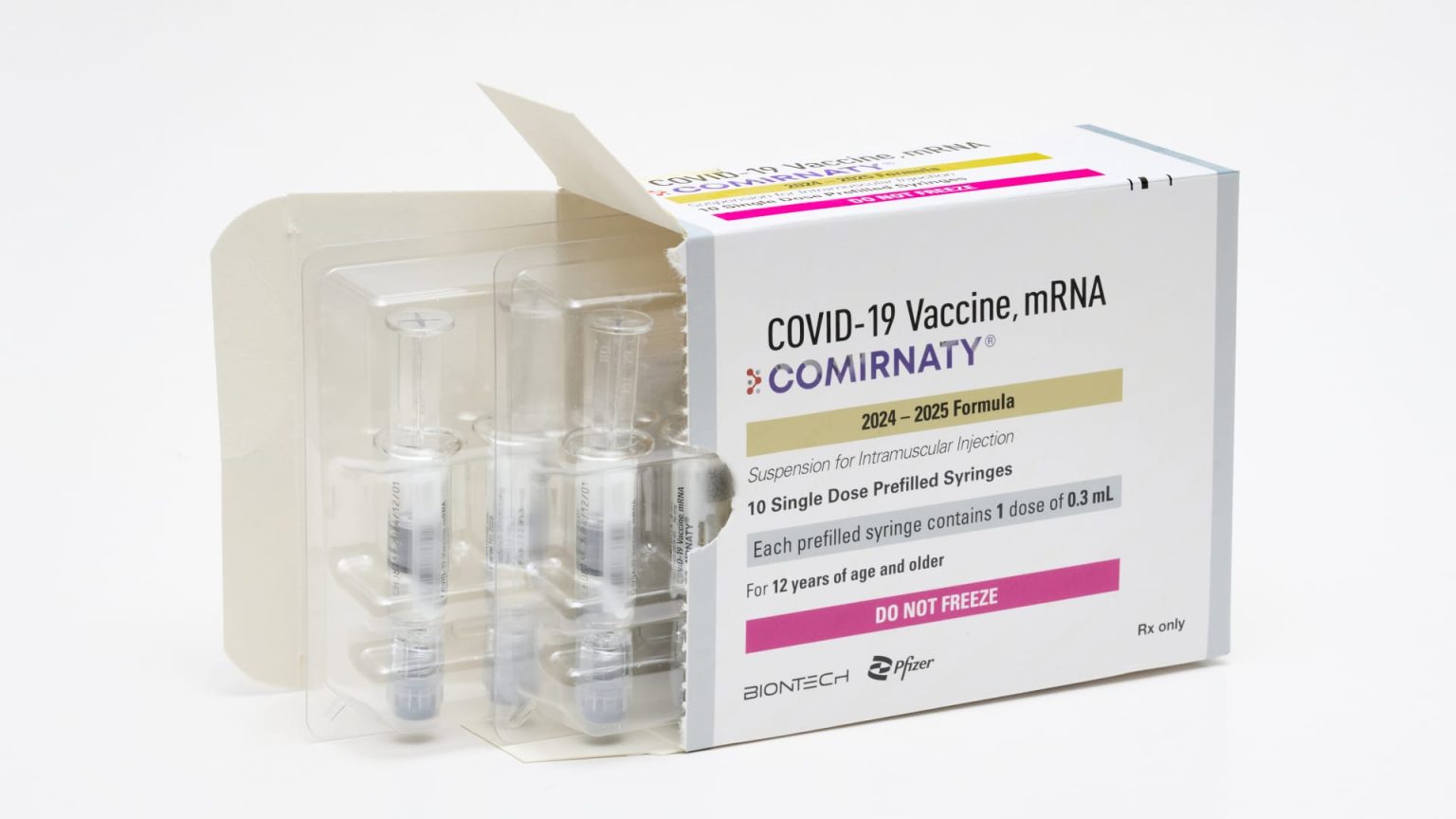The Food and Drug Administration recently approved updated Covid vaccines from Pfizer and Moderna, targeting the KP.2 strain which is a descendant of the omicron subvariant JN.1. The new shots are designed to provide stronger immune responses against other circulating subvariants of JN.1, such as KP.3 and LB.1. This approval comes as the nation is experiencing a summer surge of the virus, with the dominant strain shifting from KP.2 to other variants. The CDC has recommended that everyone over 6 months old receive an updated Covid vaccine alongside a flu jab this year.
The new vaccines from Pfizer and Moderna are specifically approved for individuals aged 12 and older, with emergency use authorization for children aged 6 months to 11 years. Pfizer has already started shipping its new shot and expects it to be available in pharmacies, hospitals, and clinics across the U.S. in the coming days. Moderna also anticipates that its shot will be available soon. Both companies are encouraging individuals to speak to their healthcare providers about receiving the updated Covid vaccine to stay protected and prevent severe illness.
The arrival of updated vaccines ahead of last year’s round could offer reassurance to Americans as the nation experiences a spike in Covid cases this summer. Wastewater monitoring has shown a high or very high level of Covid in almost every state, indicating widespread presence of the virus. While other measures of the virus are increasing, such as test positivity rates and hospitalizations, they are still below peak levels seen during the pandemic. The availability of updated vaccines may help to curb the summer Covid wave as immunity builds up in the population.
Federal health officials have been advising Americans to expect annual updates to Covid shots as the virus continues to produce new strains that can evade previous immunity. The rollout of new vaccines may face challenges as data shows that only around 22.5% of U.S. adults received the latest round of shots that were introduced last fall. Reasons for hesitancy include a lack of concern about the virus, being too busy to get vaccinated, or other logistical barriers. Despite these challenges, health officials are emphasizing the importance of staying up to date with vaccinations to protect against new variants.
In June, the FDA initially asked vaccine manufacturers to target the JN.1 strain, but later instructed them to focus on KP.2 instead if feasible. This shift may have put Novavax, a biotech company seeking authorization for a new JN.1 shot, at a disadvantage. Novavax is working with the FDA to complete its review and expects its shot to be authorized in time for peak vaccination season in the U.S. Novavax’s protein-based vaccines offer protection against descendants of JN.1, including KP.2.3, KP.3, KP.3.1.1, and LB.1. In contrast, Pfizer’s and Moderna’s mRNA vaccines are easier to update to target new strains, making them more adaptable to evolving variants of the virus.
As the new Covid vaccines are rolled out, individuals are encouraged to get vaccinated to protect themselves and others from severe illness. Updates to Covid shots have been recommended as the virus continues to change and produce new variants. The availability of updated vaccines ahead of last year’s round may help to mitigate the current summer Covid wave. Public health officials are working to address vaccine hesitancy and encourage individuals to stay current with their Covid vaccinations to maintain protection against emerging strains of the virus.













